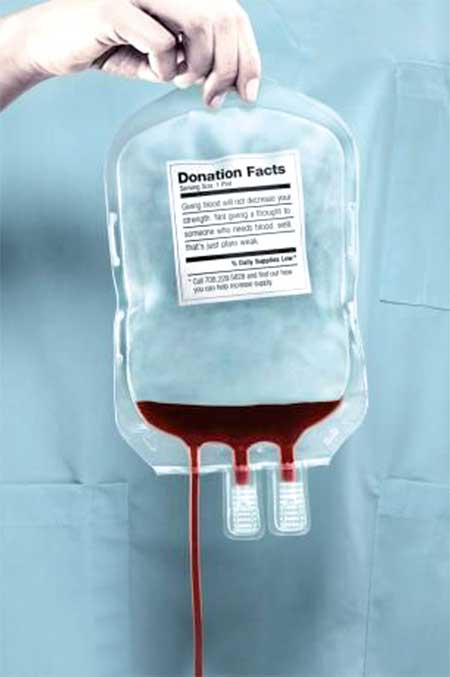A right bloody mess
 |
He grabbed the doorknob, pushed open the door and walked into the blood center on the North Third Ring Road of Beijing.
Zeng Huichang, a farmer from Jiujiang, a prefecture-level city on the southern bank of the Yangtze River in northwest Jiangxi Province, had come to the capital to donate blood to help fix his wife's brain tumor.
"She has been in hospital over 10 days," he said. "Since Beijing lacks blood, her doctor kept postponing surgery and he suggested I donate," said Zeng, 53, application form in his left hand.
With this form, relatives and friends of the patient who donate to the blood banks can receive the same amount of blood from the hospital for surgery.
"It costs us over 500 yuan a day for hospital expenses. I have no choice but to donate by myself in order to get the surgery started as soon as possible," Zeng said, clutching the form tightly in his hands. Near him stand dozens of people lining up to donate blood, most of them holding the same form.
At least half of all operations at Chinese hospitals have had to be postponed since late August, with acute blood shortages hitting Shandong, Shanxi and Jiangxi provinces and the cities of Beijing, Chengdu and Changchun, according to Caijing, a Beijing-based financial magazine.
In response, Beijing initiated its controversial solution: a donor system that pressurizes friends and relatives to donate blood.
"Without blood donated by relatives and friends, patients cannot get surgery. That's patently unfair," said Zhang Yiwu, a professor of Chinese culture at Peking University.
"People at the blood collection system should take a good look at themselves, change their way of living at the mercy of nature, and take proactive steps to find regular blood suppliers now that China has adopted voluntary blood donation without pay."
After donating 400 milliliters, Zeng faced a second, more serious setback.
"Doctors said I can only donate 400 milliliters of blood, but my wife needs 800 milliliters for her surgery," the farmer said, sleeves rolled up.
An adult can donate a maximum 400 milliliters every six months, according to Chinese law.
 0
0 






